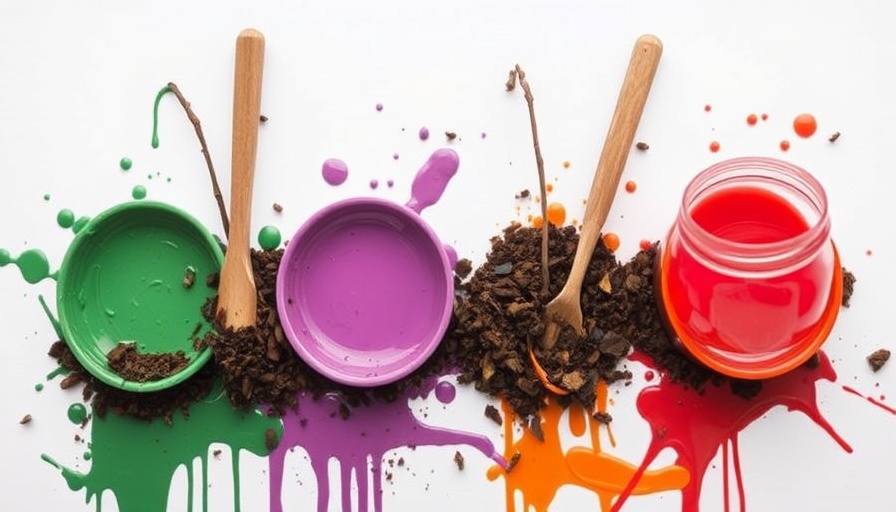
Turning Trash into Treasure: The Sustainable Art Painting Toolkit
In a groundbreaking initiative, a team of designers at Virginia Tech has introduced the Sustainable Art Painting toolkit, creatively converting food scraps from US schools into watercolor paint. Led by assistant professor Yoon Jung Choi, this project aims to tackle the staggering 90 billion pounds of food waste produced by schools annually, helping to reimagine how we perceive discarded materials.
Why Food Waste Matters
It may surprise many to learn that nearly 50 percent of food wasted in US schools is made up of fruits and vegetables. This toolkit not only seeks to minimize this waste but also promotes awareness about sustainability in educational settings. By transforming these scraps into useful art supplies, students learn valuable lessons about resourcefulness and environmental responsibility.
A Hands-On Approach to Learning
The innovation is beautifully simple yet engaging. The toolkit includes three color-coded sorting bins designed to correspond with the pigments that will eventually be extracted. Students will first sort waste, which is then subjected to a process that draws out the vibrant colors contained within. With tools inspired by common kitchen gadgets, students heat the compost and extract pigments through a press mechanism, followed by drying the liquid to create paint.
Empowering Future Generations
Choi's team collaborated with local elementary and middle school students throughout the development of this toolkit. Workshops were conducted to establish a connection between science, art, and sustainability, culminating in student exhibitions that showcased imaginative creations. This not only empowered students to engage actively with sustainability but also fostered critical thinking about waste management.
Inspire Creativity and Sustainability in Your Community
Challenging traditional perceptions of what can be considered resources, the Sustainable Art Painting toolkit is a promising model for other schools and communities seeking innovative ways to address environmental issues. Schools are encouraged to adopt similar programs that enrich education and promote sustainability in captivating and practical ways.
This project shows how design and education can merge to provide a creative outlet for young minds while addressing larger environmental concerns. As Virginia Tech looks to expand this initiative, they invite others to participate in rethinking how we interact with waste in our daily lives.
By adopting creative practices such as these, both homeowners and business owners can look for ways to reuse and repurpose materials, showing that sustainability can foster innovation and creativity.
 Add Row
Add Row  Add
Add 




Write A Comment